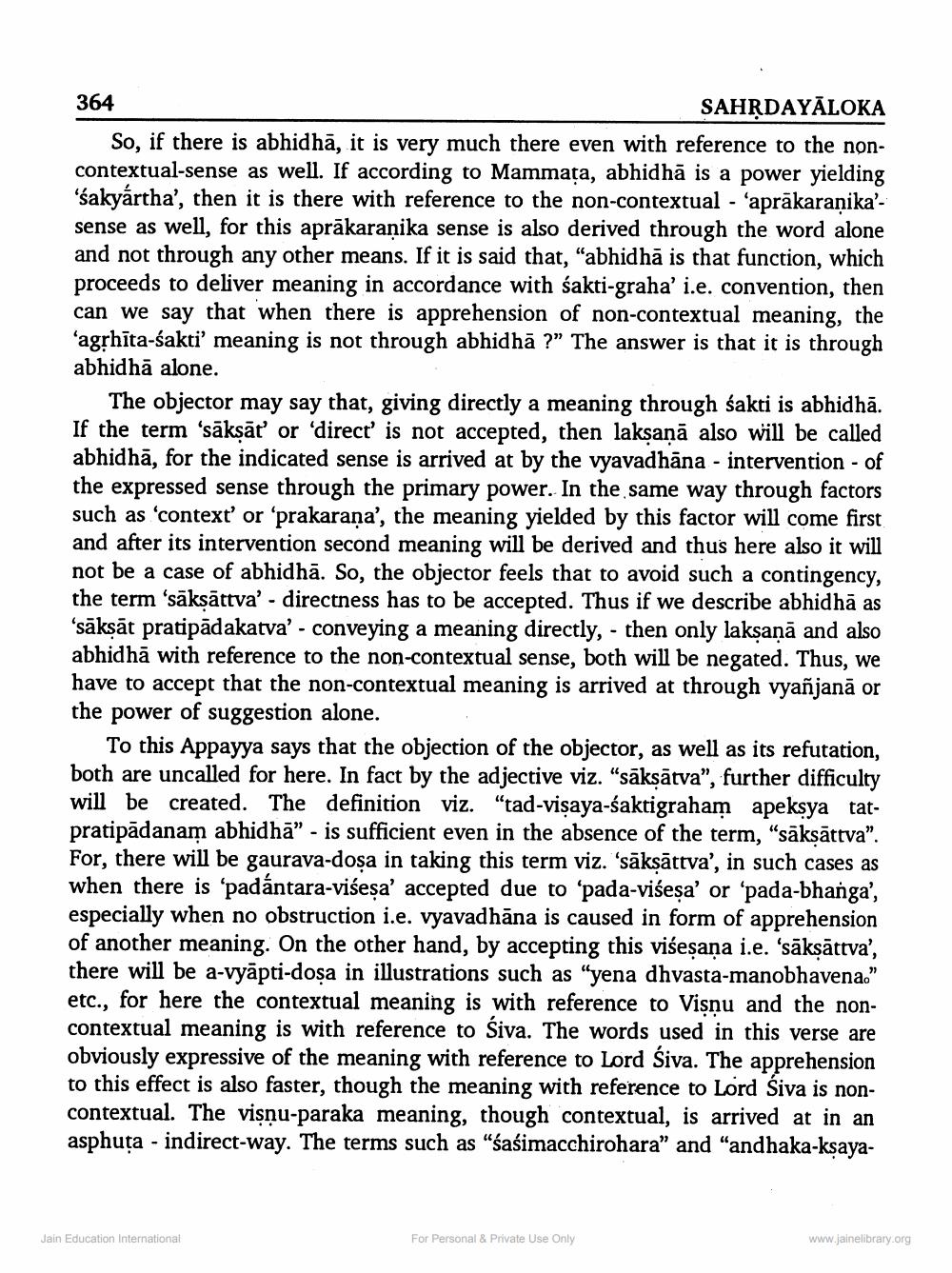________________
364
SAHRDAYĀLOKA So, if there is abhidhā, it is very much there even with reference to the noncontextual-sense as well. If according to Mammaţa, abhidhā is a power yielding 'sakyártha', then it is there with reference to the non-contextual - ‘aprākaranika’sense as well, for this aprākaranika sense is also derived through the word alone and not through any other means. If it is said that, "abhidhā is that function, which proceeds to deliver meaning in accordance with śakti-graha' i.e. convention, then can we say that when there is apprehension of non-contextual meaning, the 'agļhīta-śakti' meaning is not through abhidhā ?” The answer is that it is through abhidhā alone.
The objector may say that, giving directly a meaning through śakti is abhidhā. If the term 'sāksāt or direct' is not accepted, then laksanā also will be called abhidhā, for the indicated sense is arrived at by the vyavadhāna - intervention - of the expressed sense through the primary power. In the same way through factors such as 'context' or 'prakarana', the meaning yielded by this factor will come first and after its intervention second meaning will be derived and thus here also it will not be a case of abhidhā. So, the objector feels that to avoid such a contingency, the term 'sākṣātrva' - directness has to be accepted. Thus if we describe abhidh, as 'sāksāt pratipadakatva' - conveying a meaning directly, - then only laksaņā and also abhidhā with reference to the non-contextual sense, both will be negated. Thus, we have to accept that the non-contextual meaning is arrived at through vyañjanā or the power of suggestion alone.
To this Appayya says that the objection of the objector, as well as its refutation, both are uncalled for here. In fact by the adjective viz. "sāksātva", further difficulty will be created. The definition viz. "tad-visaya-saktigraham apeksya tatpratipādanam abhidhā" - is sufficient even in the absence of the term, "saksātrva". For, there will be gaurava-dosa in taking this term viz. 'sākṣātrva', in such cases as when there is 'padántara-višeşa’ accepted due to 'pada-višeșa' or 'pada-bhanga', especially when no obstruction i.e. vyavadhāna is caused in form of apprehension of another meaning. On the other hand, by accepting this višeșaņa i.e. 'sākṣātrva, there will be a-vyāpti-dosa in illustrations such as "yena dhvasta-manobhavena." etc., for here the contextual meaning is with reference to Vişnu and the noncontextual meaning is with reference to Siva. The words used in this verse are
usly expressive of the meaning with reference to Lord Siva. The apprehension to this effect is also faster, though the meaning with reference to Lord Siva is noncontextual. The visnu-paraka meaning, though contextual, is arrived at in an asphuta - indirect-way. The terms such as "sašimacchirohara" and "andhaka-ksaya
Jain Education International
For Personal & Private Use Only
www.jainelibrary.org




